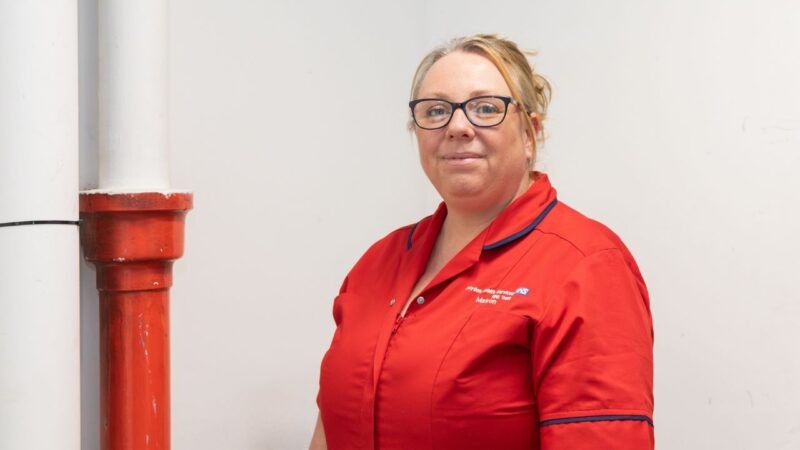Caralyn Miller is an advanced nurse practitioner working in Croydon’s urgent community response team. She oversees a daily caseload of patients as well as being on the ground, responding to urgent calls and advising other responders.
Meet Caralyn
Tell us more about the urgent community response service
It’s about trying to keep patients at home as much as possible, to help maintain their independence and prevent a hospital admission. We endeavour to get to patients within two hours of a referral and complete a full clinical assessment in their own homes including blood tests.
We have nurse prescribers on our team and access to a medicine cupboard. So, if patients are not able to get antibiotics or pain relief, for example, from their GP that day, we are able to take it to them ourselves. Sometimes our patients do have to go to the emergency department for further investigations, especially if they’re very poorly, but most of the time we try to keep them out of hospital and treat them at home.
What’s a typical day like?
I start work at 8am. It varies, but the day can often start off busy. Croydon’s urgent community response and virtual wards teams work closely together. The virtual ward team visits patients in the morning and in the afternoon we work together to respond to new urgent community calls that come in. We can get up to 20 urgent response calls a day on top of our virtual wards caseload, which can range between 60 and 100 patients. Where needed, we also make repeat visits to people we have seen the previous day.
What sort of things are you called out for?
We can help care for people with a range of conditions, including urinary tract infections (UTIs), chest infections, exacerbation of respiratory conditions such as COPD and falls. In Croydon, we also work with the council’s care line. They provide an immediate response to a resident after a fall, if safe to do so, then we will go in and do a full assessment of their health condition and their needs.
Is there a patient story that illustrates the service at its best?
We had a patient who had a fall at home. We went in and reviewed her and found that she also had a UTI. Her family were away and we found she hadn’t been eating or drinking properly. She really didn’t want to go to hospital, so we made her safe at home, got her some antibiotics and did blood tests to make sure there were no other underlying concerns.
Working closely with the local authority, we were also able to get a package of care in place for six weeks – just until she could get back up on her feet. We got her some new equipment too – an ultra-low bed because she had been rolling out some of the time. That’s a lovely case, really.
Have you always wanted to work in the NHS?
Yes, my mum was a nurse, so I’ve grown up with that interest in helping people. I qualified as a nurse in 2005 and started work in Croydon University Hospital on a gastroenterology ward then moved to intensive care. Then I worked in the community, where I was a district nurse for a few years. I’ve also worked as a stoma nurse and a custody nurse in a police station.
What’s the best thing about your job?
It’s just a real honour, when people let us into their own homes to treat them. And to know we’re working as one team across the trust’s hospital and community services, helping to improve the flow of patients and keep people at home when the hospital is under extra pressure.
The government is consulting on its 10-year plan. What are your future hopes for the NHS?
There is a real focus on shifting from hospital to community care, which is great. To make that a reality, we’ll need more staff so that we can do our job and keep people out hospital if they don’t need to be there.
There are 100s of things the NHS and social care organisations in south West London are doing to help people stay well this winter – we’re sharing 10 points from the winter plan.
